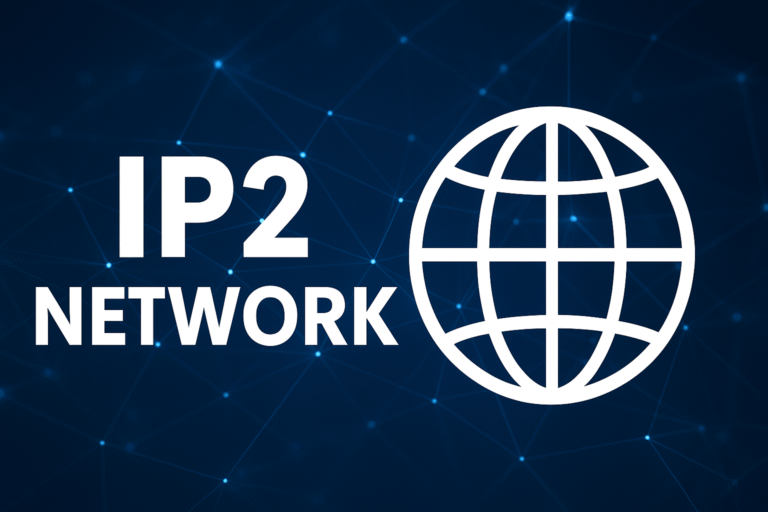Introduction to IP2 Network
The IP2 Network has become a well-known term in online spaces, particularly within live-streaming and digital communities. While some see it as a hub for entertainment and content creation, others know it for controversies and discussions about internet culture. Understanding what the IP2 Network is, how it began, and where it is headed helps us get a clear picture of its place in today’s digital landscape.
In this article, we’ll take a deep dive into the IP2 Network, exploring its origins, functions, impact on live-streaming, and the debates surrounding it.
What Is the IP2 Network?
The IP2 Network (short for Ice Poseidon 2) is an online community originally connected to streamers and content creators who rose to fame on platforms like Twitch and YouTube. It serves as a kind of directory and community hub where independent streamers can share content, build audiences, and interact with fans.
What makes the IP2 Network unique is that it isn’t tied to just one platform. Instead, it connects a variety of creators across multiple channels, making it a decentralized but still recognizable brand in the live-streaming world.
Origins of the IP2 Network
The IP2 Network grew out of the popularity of Ice Poseidon, a livestreamer who created an influential community around interactive content. As his fan base grew, so did a network of other creators who wanted to participate in similar styles of streaming.
Eventually, the IP2 Network became a hub where creators could gain visibility. The network provided exposure for smaller streamers while also keeping fans updated on what was happening in the live-streaming scene.
Why the IP2 Network Stands Out
Several aspects set the IP2 Network apart from other online communities:
-
Decentralization: Unlike other networks controlled by corporations, the IP2 Network is loosely organized, allowing individual creators more freedom.
-
Interactive Culture: Fans and streamers interact more directly, creating a unique sense of community.
-
Raw Content: Streams often feel unscripted, giving audiences a more authentic experience compared to polished productions.
The Role of IP2 Network in Live-Streaming
Live-streaming has exploded in popularity over the last decade, and the IP2 Network has played an important role in this growth. The network helped popularize:
-
IRL (In Real Life) streaming – where creators broadcast daily activities live.
-
Collaborative events – where multiple streamers come together, creating crossover audiences.
-
Community-driven growth – fans often decide which creators get promoted through word-of-mouth and sharing.
The IP2 Network not only supports established creators but also provides opportunities for newcomers to gain attention in a competitive space.
Controversies Surrounding the IP2 Network
Despite its popularity, the IP2 Network has also faced criticism. Some controversies include:
-
Content moderation: Since the network is decentralized, there is less oversight on what gets streamed. This has led to debates about inappropriate or controversial content.
-
Community behavior: A passionate fan base sometimes crosses boundaries, creating challenges for creators trying to maintain professional reputations.
-
Platform conflicts: Certain streaming platforms have banned or restricted some creators associated with the IP2 Network, sparking conversations about freedom of speech versus platform policies.
While these challenges exist, they are part of what keeps the IP2 Network in discussions across online communities.
IP2 Network and Internet Culture
The IP2 Network has become more than just a streaming hub—it is part of internet culture. It represents the rise of independent creators who can thrive without needing traditional media platforms.
-
Memes and viral moments: Clips from IP2 streams often go viral, contributing to online trends.
-
Alternative entertainment: Many viewers tune into the network as an alternative to mainstream shows.
-
Community identity: Fans identify strongly with the network, creating a subculture that continues to grow.
Future of the IP2 Network
Looking ahead, the future of the IP2 Network will likely depend on:
-
Adapting to platform rules – ensuring that content remains accessible despite restrictions.
-
Expanding creator base – bringing in new streamers with unique content.
-
Balancing freedom and responsibility – maintaining its identity while addressing concerns about safety and moderation.
If the network can balance these factors, it could continue to influence online communities for years to come.
Conclusion
The IP2 Network is a fascinating example of how online communities evolve. From its roots in livestreaming culture to becoming a recognized hub for creators and fans, it has shaped internet entertainment in unique ways. While controversies and challenges remain, the network continues to thrive as a space where independent voices can be heard.
For fans of live-streaming and internet culture, the IP2 Network offers an unfiltered, interactive experience that stands apart from traditional media. As digital spaces grow and change, this network remains an important case study in how communities shape modern entertainment.

